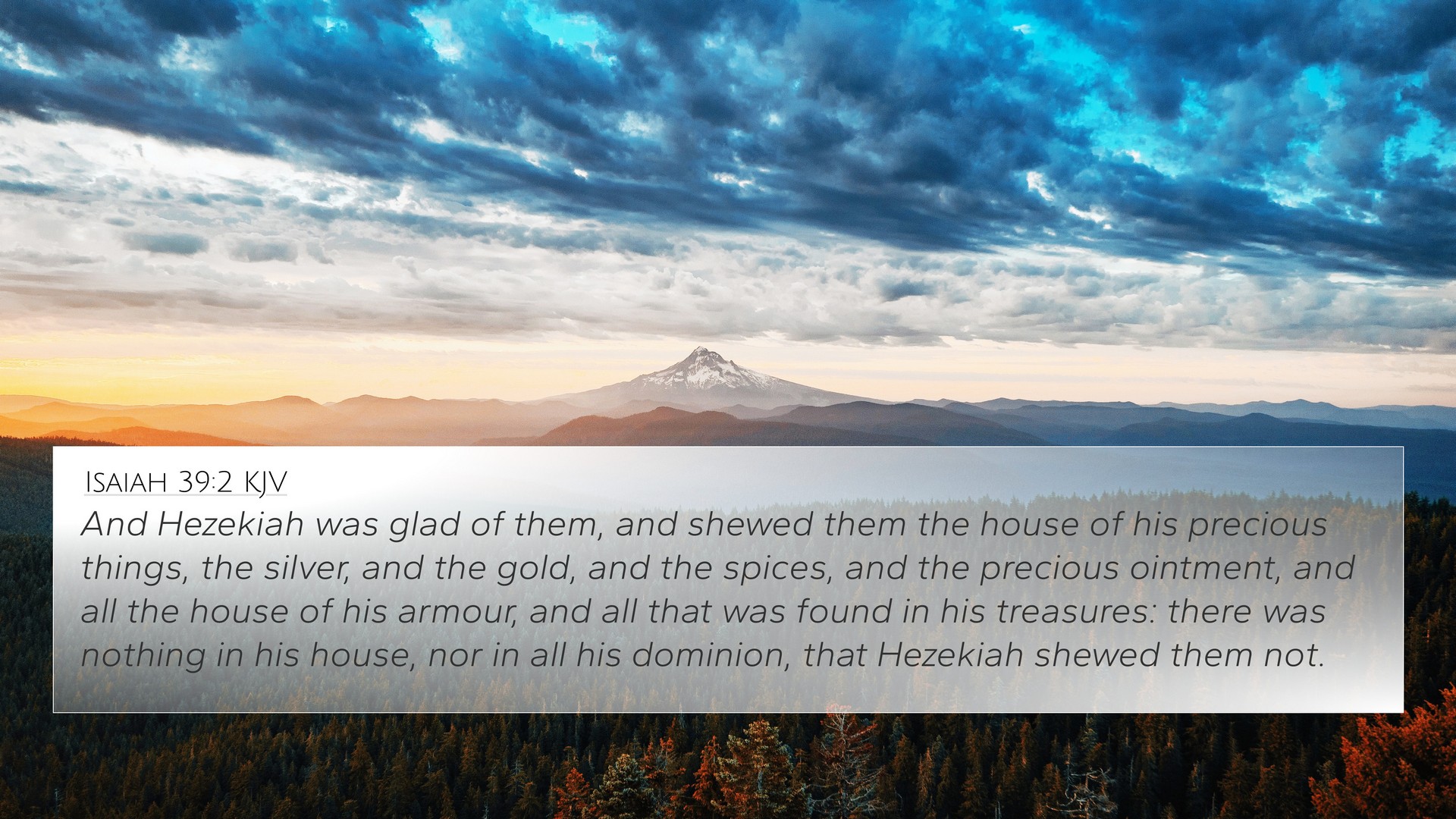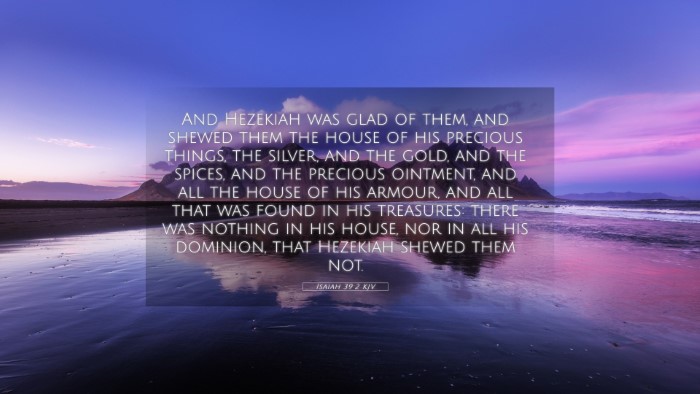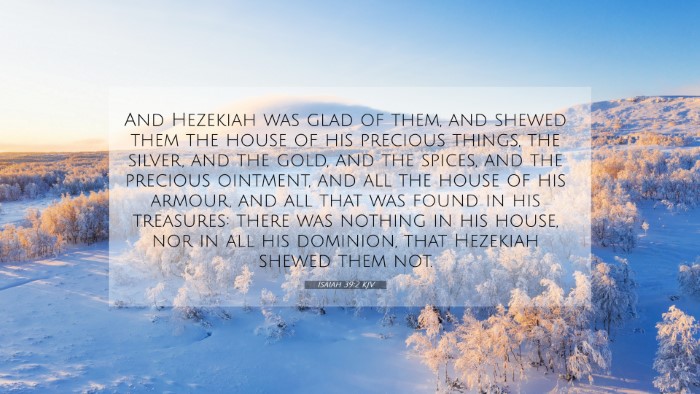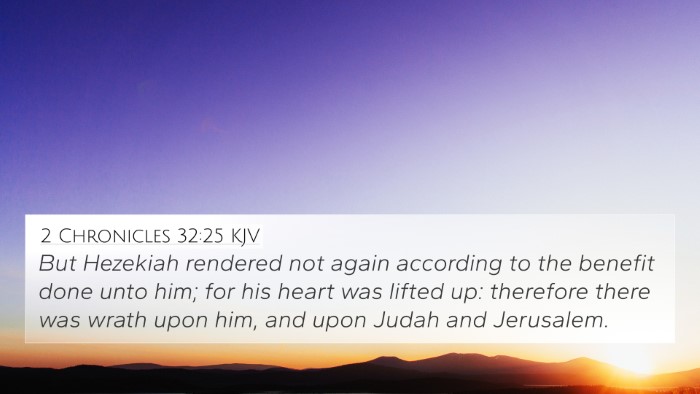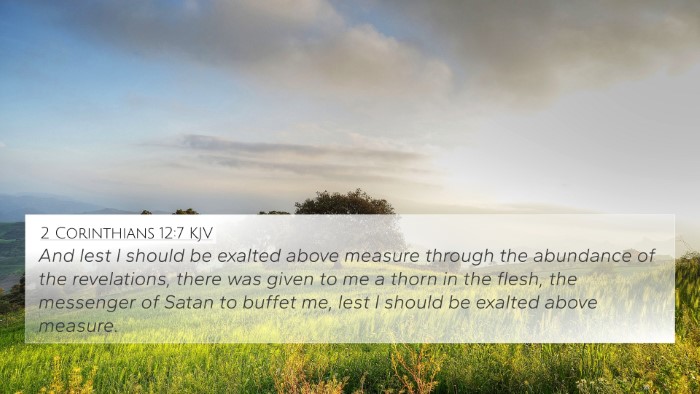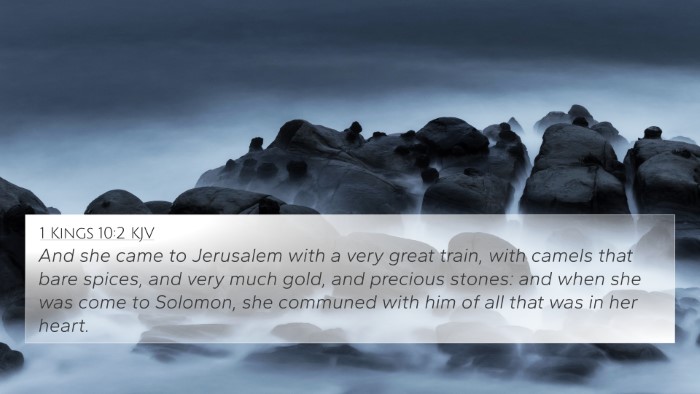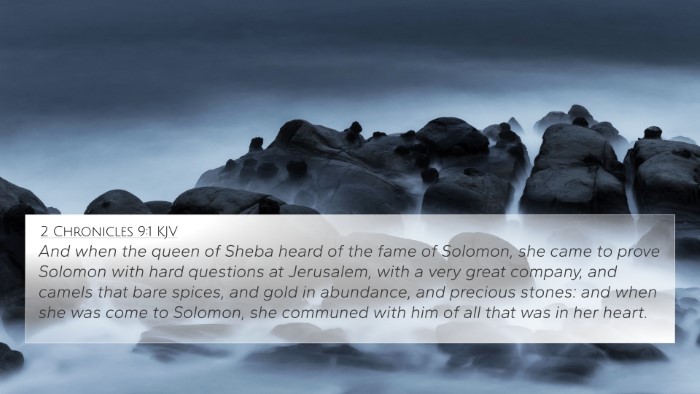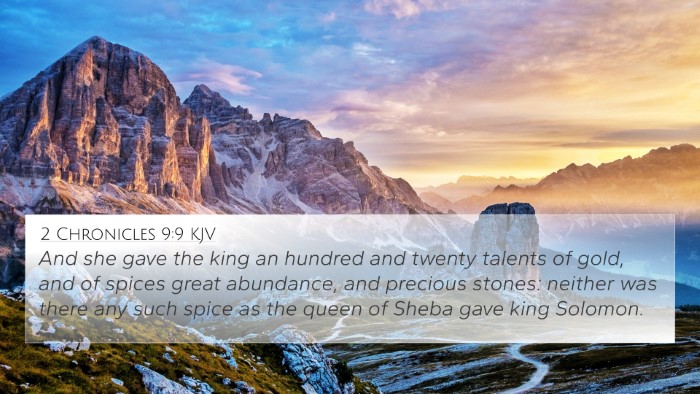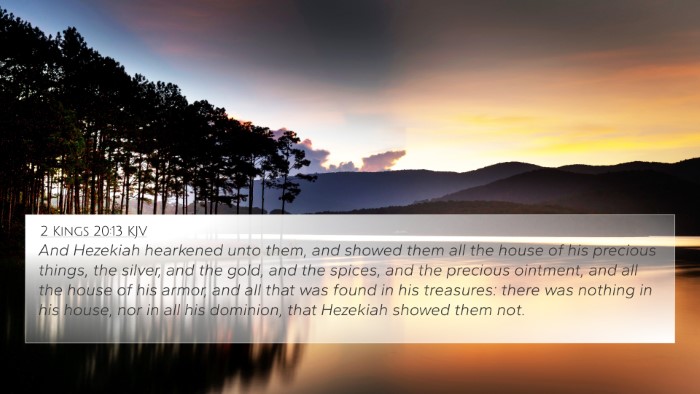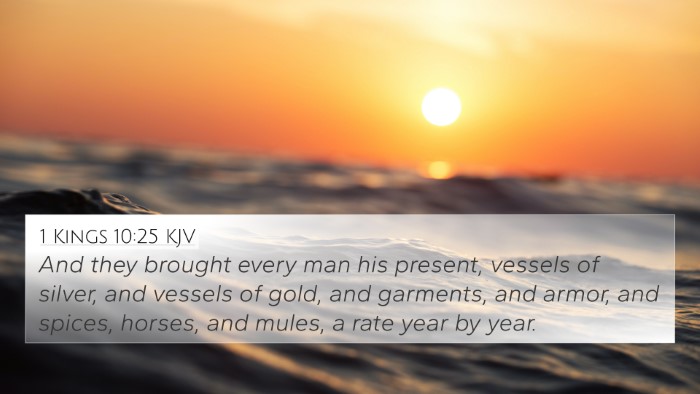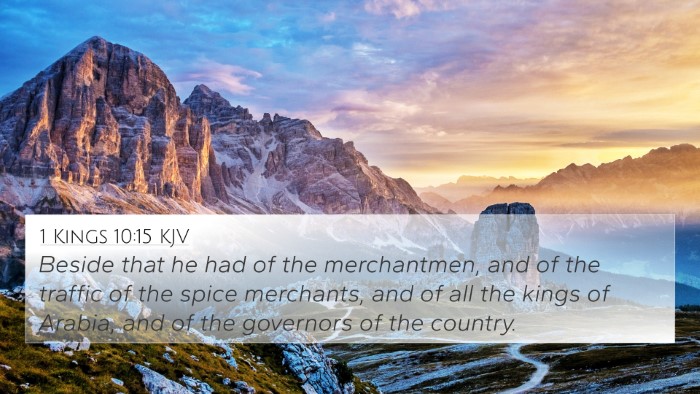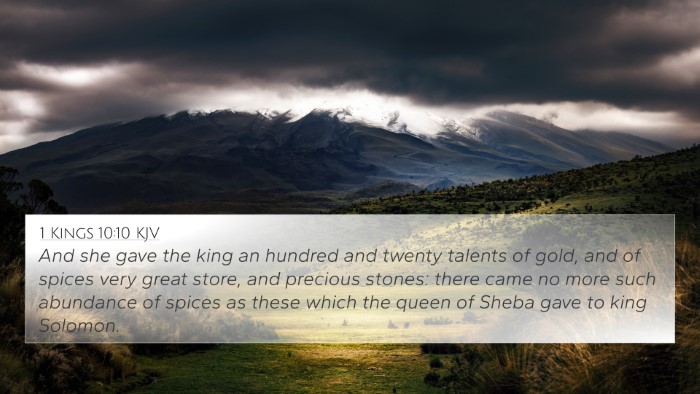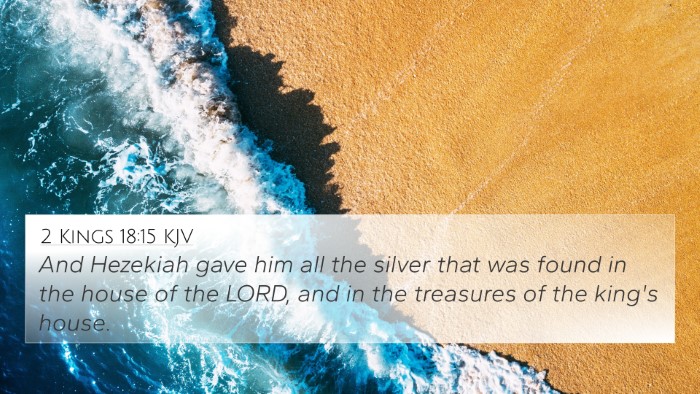Understanding Isaiah 39:2
Isaiah 39:2 states: “And Hezekiah was glad of them, and showed them the house of his precious things, the silver, and the gold, and the spices, and the precious ointment, and all the house of his armor, and all that was found in his treasures: there was nothing in his house, nor in all his dominion, that Hezekiah showed them not.” This verse provides insight into the nature of King Hezekiah's interactions with the envoys from Babylon, revealing themes of pride, folly, and the consequences of misplaced trust.
Contextual Overview
This passage is set against the backdrop of Hezekiah's reign over Judah, during a time when the threat of Assyria loomed large. Following a miraculous deliverance from Assyrian siege, Hezekiah received ambassadors from Babylon, prompting an opportunity that led to a revealing moment about his character.
Analysis of Hezekiah's Actions
Hezekiah's warm reception of the Babylonian envoys, as noted by Matthew Henry, reflects not just hospitality, but an element of pride in showcasing his wealth and military strength. This is a precarious blend of diplomacy and self-indulgence that demonstrates a significant lack of discernment.
Insights from Commentaries
- Matthew Henry: Highlights that Hezekiah's actions were not merely a display of wealth, but a foolish attempt to impress. His pride ultimately opened the door to future calamities for Judah.
- Albert Barnes: Notes that Hezekiah’s openness in displaying his treasures is indicative of a heart that seeks validation through material display rather than reliance on God. This foreshadows future consequences.
- Adam Clarke: Emphasizes the moral lesson inherent in this verse, pointing out that the eagerness to display one's riches can lead to vulnerability and betrayal, especially when the power of the envoys is drawn into question.
Thematic Connections
This verse initiates significant themes that resonate throughout Scripture:
- Pride and Humility: Hezekiah's show of pride serves as a contrasting theme against the biblical call to humility (Proverbs 16:18).
- Wisdom in Leadership: His lack of discernment showcases the need for godly wisdom in leadership roles (James 1:5).
- Materialism versus Spirituality: The verse illustrates the tension between earthly treasures and spiritual integrity (Matthew 6:19-21).
Cross-References for Deeper Understanding
To further comprehend the implications of Isaiah 39:2, consider these Bible verse cross-references:
- 2 Kings 20:12-19: This passage recounts the same event and highlights the prophetic warning that would follow.
- Proverbs 11:2: “When pride comes, then comes disgrace, but with the humble is wisdom.” This complements the theme of pride in Hezekiah's actions.
- James 4:6: “God opposes the proud, but shows favor to the humble.” Correlating the theme of humility that is often absent in displays of wealth.
- Isaiah 2:22: Advises against trusting in mere humans and riches, underscoring a significant spiritual principle lost in Hezekiah's moment of pride.
- Lamentations 1:10: Reflects on the consequences of abandoning God for worldly interests.
- Matthew 16:26: Questions the value of gaining the whole world at the expense of one’s soul, directly challenging material pursuits.
- Revelation 3:17: Speaks to a heart that claims wealth and success while being spiritually impoverished, mirroring Hezekiah's situation.
The Importance of Cross-Referencing in Bible Study
Engaging in cross-referencing Biblical texts enhances understanding, revealing connections between scripture and deepening the study of themes, character behaviors, and the overall narratives in the Bible.
Utilizing Tools for Cross-Referencing
Several methods and tools can facilitate the process of meaningful cross-referencing:
- Bible Concordance: Use a concordance to discover related verses and themes.
- Bible Cross-Reference Guide: Many study Bibles include cross-references directly in the margins, providing an immediate link to related scriptures.
- Cross-Reference Bible Study: Emphasizes the discipline of comparing verses and drawing parallels, enriching our understanding.
- Inter-Biblical Dialogue: Considers how verses in the Old Testament inform teachings in the New Testament.
Conclusion
Isaiah 39:2 serves as a powerful reminder of the perils of pride and the importance of temperance in displays of wealth and influence. The connections, or thematic Bible verse connections, provide depth, illuminating how Hezekiah’s choices ultimately led to significant consequences for his kingdom. Reflection on these themes encourages believers to seek a humble heart, guided by wisdom and reliance on God rather than earthly treasures.
